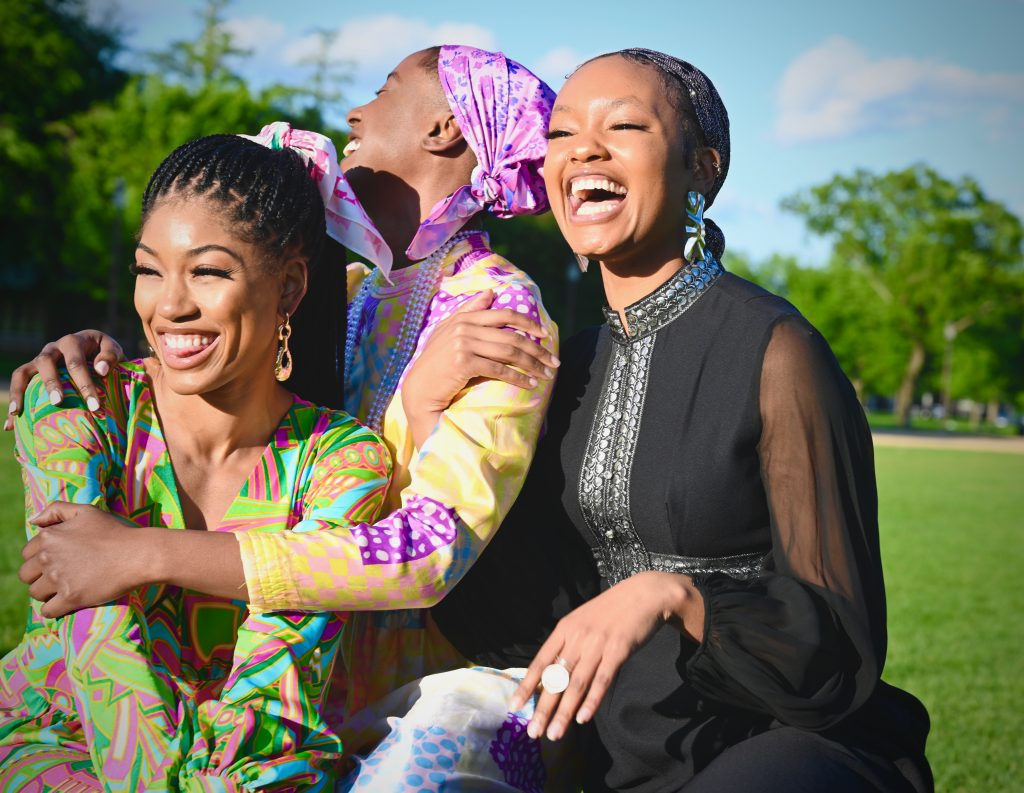Janet Adeyemo
A woman should be comfortable with her race because it is an integral part of her identity and shapes her experiences and perspectives in the world. Race is not just a physical characteristic but also a social construct that influences how society views and treats individuals.
Being comfortable with one’s race means accepting and embracing one’s heritage, culture, and history. It means recognizing and valuing the contributions of one’s ancestors and acknowledging the challenges and struggles they faced. It also means acknowledging the privileges and disadvantages that come with being a member of a particular racial group.
Furthermore, being comfortable with one’s race allows a woman to develop a positive self-image and self-esteem. When a woman is proud of her racial identity, she can resist negative stereotypes and biases that may be directed at her. She can also celebrate the beauty and diversity of her culture and feel empowered to share it with others.
Being comfortable with one’s race also allows a woman to build meaningful relationships with others from her racial group. It provides a sense of belonging and connection to a community of people who share similar experiences and challenges. This can be especially important in times of adversity, such as when facing discrimination or prejudice.
Moreover, being comfortable with one’s race allows a woman to navigate and challenge systemic racism and discrimination. By recognizing the ways in which race shapes society and affects individuals, a woman can be better equipped to identify and challenge injustices. She can also be an ally to others who are facing discrimination and work towards building a more equitable society.
In conclusion, being comfortable with one’s race is important for a woman’s personal growth, self-esteem, and sense of belonging. It allows her to embrace her heritage, culture, and history, and resist negative stereotypes and biases. It also enables her to build meaningful relationships with others from her racial group and work towards challenging systemic racism and discrimination.
In a more expository discuss, let’s consider certain reasons why a woman should not be racially discriminated
Women should not be compared through race for several reasons.
- First and foremost, race is a social construct that has been used to create hierarchies and justify discrimination and oppression. Comparing women based on their race perpetuates the idea that some races are superior to others, which is not only false but also harmful.
- Secondly, comparing women through race ignores the fact that each woman is an individual with her own unique experiences and challenges. While race may be one aspect of a woman’s identity, it does not define her completely. Women come from diverse backgrounds and have different cultural, social, and economic experiences that shape who they are.
- Thirdly, comparing women through race reinforces the notion that women of a certain race are homogeneous and interchangeable. This erases the diversity and complexity within each racial group and reduces women to a stereotype. Women should be valued for their individuality, not reduced to a monolithic identity.
- Furthermore, comparing women through race can lead to harmful stereotypes and biases. When we make assumptions about a woman’s abilities, values, or preferences based solely on her race, we risk perpetuating negative stereotypes that have been used to marginalize and discriminate against certain groups of women. This can lead to discrimination in the workplace, in education, and in other areas of life.
- Lastly, comparing women through race can create divisions and conflicts between women. Instead of supporting and uplifting each other, women may view each other as competitors or threats based on their race. This undermines solidarity among women and makes it harder to address common challenges and issues.
- In conclusion, comparing women through race is harmful and counterproductive. Women should be valued for their individuality and diversity, and race should not be used to create hierarchies or perpetuate harmful stereotypes. By recognizing and celebrating the unique experiences and contributions of women from all backgrounds, we can build a more inclusive and equitable society for all women.


5 Responses
For respect, equity and dignity we must speak as one against racism
Say a big NO to Racism
No to racism
We say NO to Racial Discrimination
Concise and unequivocally layered out